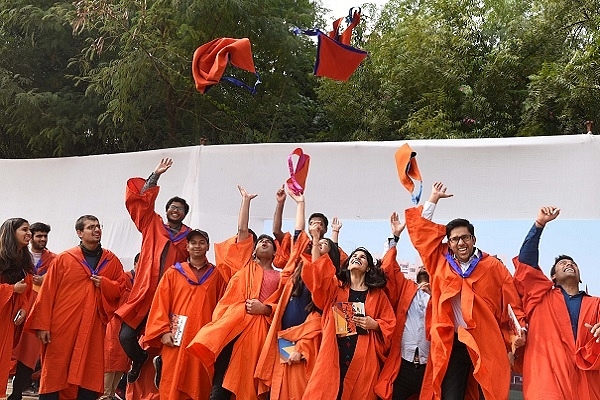
Beginning Academic Year 2019-20, Degrees From Top Universities Will Be A Click Away As UGC Officially Recognises Online Degrees
In a major reform aimed at improving access to higher education, the University Grants Commission (UGC) has invited proposals from top institutions ( described as ‘Higher Education Institutions (HEIs)‘ in UGC parlance), to offer courses in ‘Online mode’, including those leading to degrees, from academic year 2019-20 onwards. Through this major initiative, the HRD ministry is hoping to achieve its target of improving the Gross enrolment ratio (GER ) in higher education to 30% by the year 2020. India’s Gross Enrolment Ratio or GER in higher education stood at 25.2% in 2016-17.
R. Subrahmanyam, Education Secretary, Ministry of HRD, took to Twitter and and the hailed new development “A new dawn in higher education system in India. UGC invites applications for ONLINE degrees by the best institutions.”
In a circular released on January 4, the University Grants Commission (UGC) invited higher education institutions to apply for starting online courses from January 7 to 31, 2019.
As per the new regulatory architecture, institutions can now offer certificate, diplomas and degree programmes in only those disciplines in which it has already been offering the same or similar programmes / courses at graduation level in regular mode (of classroom teaching) . However, programmes that require practical/ laboratory courses as a curricular requirement shall not be permitted under the ‘Online mode’. While the complete delivery of the courses will be online, the students will have to sit for exams where they will undergo biometric authentication.
Institutions will be permitted to enrol Indian and foreign students. The Examinations will be conducted in proctored mode and in conformity with any norms for such examinations stipulated by the commission. The online learning shall have a minimum of four quadrants: video lectures, e-content, self-assessment and discussion forum to clarify doubts.
Only institutions which meet the following two criterions will be allowed to offer courses in online mode
1. Top-100 in overall category in the National Institutional Ranking Framework (NIRF) for at least two years in the previous three years
2. In existence for at least five years with minimum National Assessment and Accreditation Council (NAAC) accreditation of 3.26 on a 4-point scale. The institution should be in the top-100 in overall category in the National Institutional Ranking Framework (NIRF) for at least two years in the previous three years.
NAAC and NIRF conditions however will not be applicable to existing government Open Universities till NAAC or similar accreditation system or NIRF are made available
A report in Times Of India quoted a senior official in the HRD ministry highlighting the key features of the online courses “Admissions will take place twice a year and a higher education institution will offer the same course it has been offering under conventional mode or the open and distance learning (ODL) mode. However, the delivery will be online. But the quality remains same and the exams will be conducted at designated centres where the students will be identified through biometric data they need to submit at the time of enrolment.”
The eligible universities can submit their application till January 31 this year. In May 2018, the Commission approved UGC (Online Courses) Regulations, 2018, viewed by many as a landmark reform in the field of Higher Education.